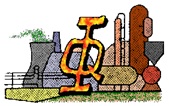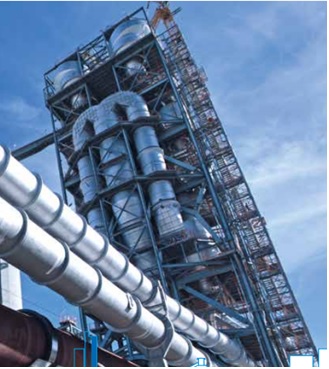Career outcomes and skills
Key information
Master's degree that qualifies for the Chemical Engineer profession (BOE 2009-12977).
Access to Doctoral studies (Chemical, Environmental and Biofood Engineering).


Career outcomes
This Master trains proffesionals for the chemical and related industries, such as pharmaceutical, biotechnological, materials, energetic, food or environmental, where Chemical Engineers developp their proffesional activity. Among the positions held by Chemical Engineers, one can found management, production, engineering, maintenance, safety, quality, environment, or research and development (R & D). There are also employment opportunities in the public sector, such as research centers, administration or teaching.
Alumni LinkedIn
Doctoral studies in Chemical, Environmental and Biofood Engineering
Skills
The skills adquired in the Chemical Engineering Master by the University of Oviedo are regulated as established by Resolution of 8th June 2009 from the Secretaría General de Universidades, Spanish Government (BOE 2009-12977). Hence, the Master's degree qualifies for the Chemical Engineer profession.
These skills are divided into Basic, General and Specific Skills. The Specific Skills are clasiffied into two modules: Process and Product Engineering (CIPP) and Integrated Management (CGOPS) Modules.
| Basic Skills | |
| CB1 |
Have a knowledge and understanding of the principles that give a base or opportunity to be original in the development and/or application of ideas. Be aware of research and developments, and their potential impact on current practice. |
| CB2 |
Be able to apply and adapt the acquired knowledge to process design and problem solving in unfamiliar situations belonging to multidisciplinary contexts related to the field of study. |
| CB3 |
Be able to integrate the different types of knowledge and work with information that may be incomplete or uncertain, including the ability to formulate judgements influenced by the social and ethical reasoning and behaviour of the professional engineer. |
| CB4 |
Be competent in communicating their conclusions, clearly and unambiguously, and the knowledge and reasons in which they are founded, to both specialized and non-specialized public. |
| CB5 |
Be competent in the learning abilities that allow the students to continue learning, in a way that will be in great part self-guided or autonomous. |
| General Skills | |
| CG1 |
Be able to apply the scientific method and the principles of engineering and economy to formulate and solve complex problems of processes, operations, systems and services where matter changes in composition, state, or energy content, characteristic of the chemical industry and other related sectors, such as pharmaceutical, biotechnological, material, energy, food, or environmental. |
| CG2 |
Be able to conceive, project and design processes, equipment and industrial facilities and services, in the field of chemical engineering and related industrial sectors, in terms of quality, safety, economy, and in an environmentally sustainable way. |
| CG3 |
Be able to manage, from both technical and economical perspectives, projects and facilities related to chemical engineering and other industrial sectors. |
| CG4 |
Be able to do the appropriate research, undertake the design and manage the development of engineering solutions, in new or partially known environments, relating creativity, originality, innovation and technology transfer. |
| CG5 |
Be able to develop mathematical models and be competent in the use of computer methods for solving them, as a scientific and technological base for the design of new processes, systems, facilities and products, as well as to optimize the existing ones. |
| CG6 |
Be able to analyse the continuous development of product and processes, taking into consideration technical, health, safety and environmental aspects, as well as economic and quality reliance concerns. |
| CG7 |
Be able to integrate knowledge and take decisions under conditions of uncertainty, including the consideration of reflections based on ethical and social responsibilities. |
| CG8 |
Be able to manage multidisciplinary teams capable of addressing technical changes within international and global economic contexts. |
| CG9 |
Be able to communicate and discuss proposals and conclusions in multilingual forums, both specialized and unspecialized, in a professional manner. |
| CG10 |
Be able to adapt to technical changes, implementing new technologies with an entrepreneurial mindset. |
| CG11 |
Be competent in autonomous learning, in order to maintain and improve the chemical engineering competences that allow the continuous professional development. |
| Specífic Skills | |
| CIPP1 |
Have a knowledge and understanding of Mathematics, Physics, Chemistry, Biology and other Sciences necessary to support application of key engineering principles. |
| CIPP2 |
Be able to design and optimize products, processes, systems and services for the chemical industry on the basis of the different chemical engineering areas, comprising of processes and transport phenomena, separation operations, and chemical, nuclear, electrochemical and biochemical reaction engineering. |
| CIPP3 |
Be able to develop mathematical and computer models relevant to the chemical engineering discipline, and an appreciation of their limitations. Awareness of developing technologies related to chemical engineering. |
| CIPP4 |
Be able to solve problems, design processes and methodologies, and have the ability to apply and adapt them in unfamiliar situations. Be capable of generating an innovative design for processes, systems and products to fulfil new needs. |
| CIPP5 |
Be competent in management and supervision of all kinds of facilities, processes, systems and services related to the different industrial areas of chemical engineering. Ensure fitness for purpose ( including operation, maintenance, reliability, etc.). |
| CIPP6 |
Be able to design, build and implement methods, processes and facilities for the integrated management of industrial supplies and wastes (solid, liquid and gaseous), including the evaluation of their impacts and risks. |
| CGOPS1 |
Have a knowledge and understanding of the commercial and economic context of chemical engineering processes, including management and business practices, their limitations, and how these may be applied appropriately. |
| CGOPS2 |
Have a knowledge and understanding of the requirements to promote a sustainable development in chemical engineering activities, including the relevant legal framework, labour, health, environment, safety and risk issues. |
| CGOPS3 |
Be competent in the management of research and development (R&D) and innovation, transfer of technology and intellectual property. |
| CGOPS4 |
Be able to generate an innovative design for processes, systems and products to fulfil new needs. Adapt designs to meet their new purposes and applications. |
| CGOPS5 |
Be competent in the management and implementation of verification and control of facilities, processes and products, as well as certifications, audits, inspections, tests and reports. |
| CTFM1 |
|

